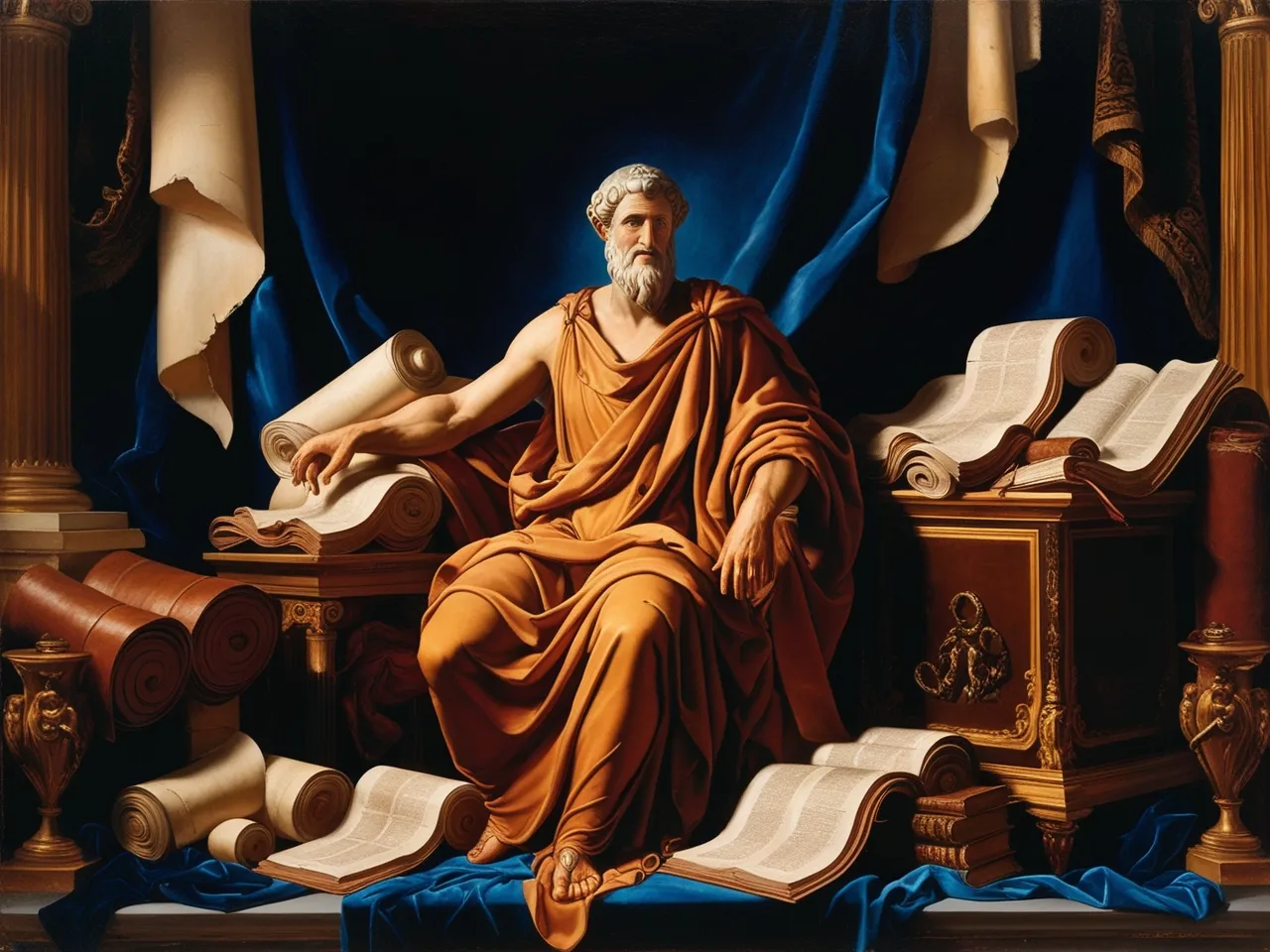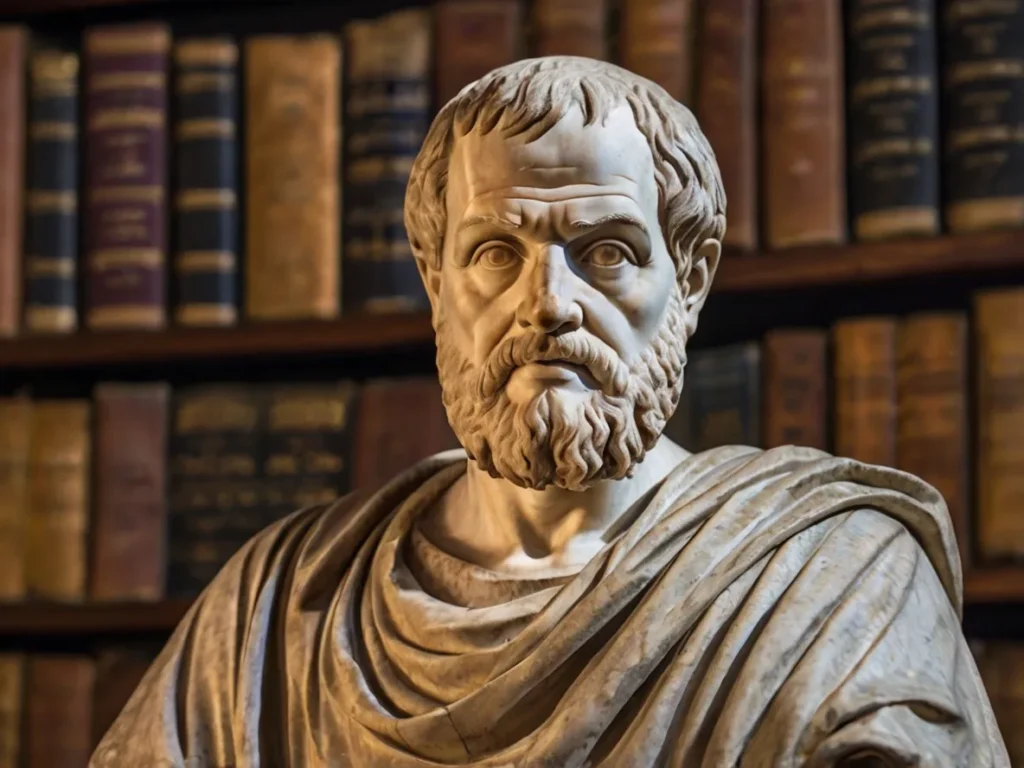Ancient Greek philosophy is a cornerstone of Western intellectual tradition. Spanning from the 6th century BCE to the 6th century CE, this era produced some of the most influential thinkers in history. Among these, Socrates, Plato, and Aristotle stand out, shaping the course of Western philosophy. This article explores their contributions and the lasting impact of their ideas.

Socrates: The Father of Western Philosophy
Socrates (470/469 – 399 BCE) is often considered the father of Western philosophy. Unlike his predecessors, the Pre-Socratics, who focused on natural phenomena, Socrates shifted the philosophical focus to ethics and human behavior. His method of inquiry, known as the Socratic Method, involved asking probing questions to stimulate critical thinking and illuminate ideas.
The Socratic Method
The Socratic Method is a form of cooperative argumentative dialogue. It involves asking a series of questions to help a person or group discover their beliefs about some topic. This method encourages deep thinking and exposes contradictions in one’s thoughts, leading to greater clarity and understanding.
Socratic Ethics
Socrates believed that knowledge is virtue. He argued that if a person knows what is right, they will do what is right. Hence, ignorance leads to wrongdoing. This perspective emphasizes the importance of self-knowledge and continuous self-examination. Socratic ethics revolves around the idea that the unexamined life is not worth living, a principle that has deeply influenced Western moral philosophy.
Socrates’ Trial and Death
Socrates’ commitment to his principles led to his trial and execution. In 399 BCE, he was accused of corrupting the youth of Athens and impiety. Despite having the opportunity to escape, Socrates accepted his death sentence, drinking hemlock and thus becoming a martyr for philosophy. His death marked a significant moment in the history of philosophy, symbolizing the struggle for intellectual freedom and integrity.

Plato: The Architect of Western Thought
Plato (428/427 – 348/347 BCE), a student of Socrates, further developed his teacher’s ideas and founded the Academy in Athens, one of the earliest institutions of higher learning in the Western world. Plato’s work covers a wide range of topics, including politics, ethics, metaphysics, and epistemology.
The Theory of Forms
One of Plato’s most significant contributions is his Theory of Forms. According to this theory, the material world is a shadow of a higher, unchanging reality consisting of Forms or Ideas. These Forms are perfect and immutable, unlike their imperfect and transient counterparts in the physical world. For instance, all circular objects in the material world are imperfect representations of the perfect Form of a circle.
The Allegory of the Cave
Plato illustrates his Theory of Forms in the Allegory of the Cave, found in Book VII of “The Republic.” In this allegory, prisoners are chained inside a dark cave, only able to see shadows cast on a wall by objects behind them. These shadows represent the prisoners’ perception of reality. The journey out of the cave into the sunlight symbolizes the philosopher’s ascent to the knowledge of the Forms, culminating in the understanding of the Form of the Good.
Political Philosophy: The Republic
In “The Republic,” Plato outlines his vision of an ideal state ruled by philosopher-kings. He argues that only those who have achieved a deep understanding of the Forms are fit to govern. Plato’s ideal state is structured into three classes: the ruling philosophers, the warrior class, and the producers (farmers, artisans, etc.). Each class corresponds to a part of the soul: the rational, the spirited, and the appetitive.

Plato’s Influence
Plato’s influence on Western thought is immeasurable. His ideas on metaphysics, epistemology, and politics have shaped countless philosophical discussions. The Academy he founded continued to be a center of learning for centuries, influencing many subsequent thinkers.
Aristotle: The Systematic Philosopher
Aristotle (384 – 322 BCE), a student of Plato, is perhaps the most influential philosopher in Western history. While he was initially a member of Plato’s Academy, Aristotle’s approach to philosophy eventually diverged from his teacher’s. He founded the Lyceum in Athens and made substantial contributions to numerous fields, including logic, metaphysics, ethics, politics, biology, and more.
Logic and the Syllogism
Aristotle is often regarded as the father of logic. He developed the first formal system of logic, centered around the syllogism, a form of deductive reasoning. A syllogism consists of two premises leading to a conclusion. For example:
- Major premise: All men are mortal.
- Minor premise: Socrates is a man.
- Conclusion: Therefore, Socrates is mortal.
Aristotle’s work in logic laid the foundation for the development of scientific reasoning.
Metaphysics: Substance and Essence
In metaphysics, Aristotle introduced the concept of substance, which he defined as that which exists independently. He distinguished between substance and accidents (properties that do not exist independently). Aristotle also developed the theory of hylomorphism, which posits that everything is a compound of matter and form. This theory attempts to explain change and identity over time.
Aristotle’s Ethics: The Nicomachean Ethics
Aristotle’s ethical theory is presented in the “Nicomachean Ethics.” He proposed that the highest good for humans is eudaimonia, often translated as “happiness” or “flourishing.” According to Aristotle, eudaimonia is achieved through the cultivation of virtue, which involves finding the mean between extremes of excess and deficiency. For instance, courage is the mean between recklessness and cowardice.

Political Philosophy
In politics, Aristotle’s views are detailed in his work “Politics.” He believed that humans are naturally political animals and that the state exists to promote the good life. Aristotle classified governments into three good forms (monarchy, aristocracy, and polity) and their corrupt counterparts (tyranny, oligarchy, and democracy). He advocated for a mixed government that balances elements of democracy and oligarchy.
Contributions to Science
Aristotle made pioneering contributions to various scientific fields, including biology, physics, and astronomy. He conducted empirical observations and laid the groundwork for the scientific method. His classification of living organisms remained influential until the development of modern taxonomy.
The Legacy of Ancient Greek Philosophy
The philosophical ideas of Socrates, Plato, and Aristotle have left an indelible mark on Western thought. Their exploration of ethics, politics, metaphysics, and epistemology continues to influence contemporary philosophy and various other fields. Their legacy is evident in the works of later philosophers, including the Stoics, Epicureans, and Neoplatonists, as well as in the intellectual traditions of the Renaissance and the Enlightenment.
Socratic Legacy
Socrates’ emphasis on ethical inquiry and the Socratic Method remains a cornerstone of philosophical education. His commitment to seeking truth and challenging assumptions inspires critical thinking and self-examination.
Platonic Legacy
Plato’s Theory of Forms and his ideas on political philosophy have shaped discussions on metaphysics and governance. His allegories and dialogues continue to be studied for their profound insights and literary brilliance.
Aristotelian Legacy
Aristotle’s comprehensive approach to philosophy and science has left a lasting impact on a wide range of disciplines. His logical system, ethical theory, and contributions to natural sciences laid the foundation for future intellectual developments.

Conclusion
The philosophical endeavors of Socrates, Plato, and Aristotle represent a golden age of ancient Greek philosophy. Their contributions have profoundly shaped the intellectual landscape of the Western world, providing a foundation for countless subsequent thinkers and movements. Understanding their ideas offers valuable insights into the nature of human existence, knowledge, and the pursuit of the good life. Through the continued study and application of their philosophies, the legacy of these ancient Greek thinkers endures, guiding and inspiring future generations.











